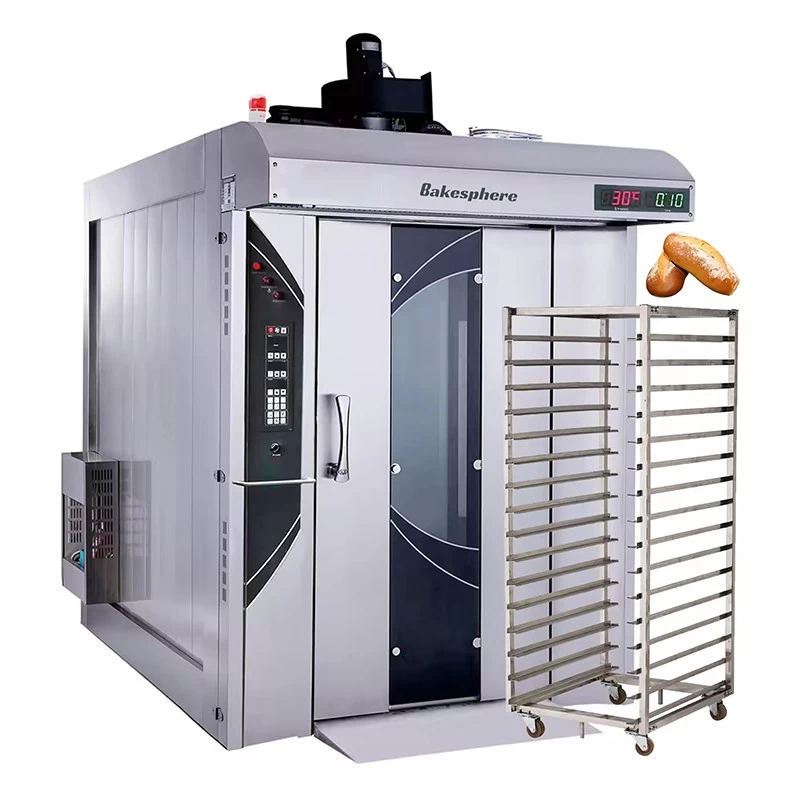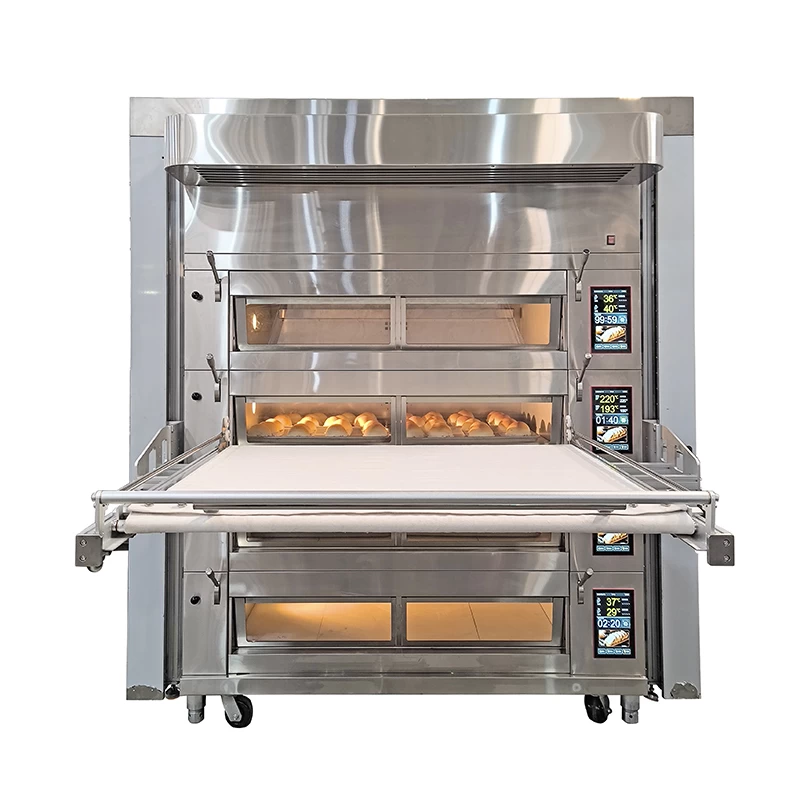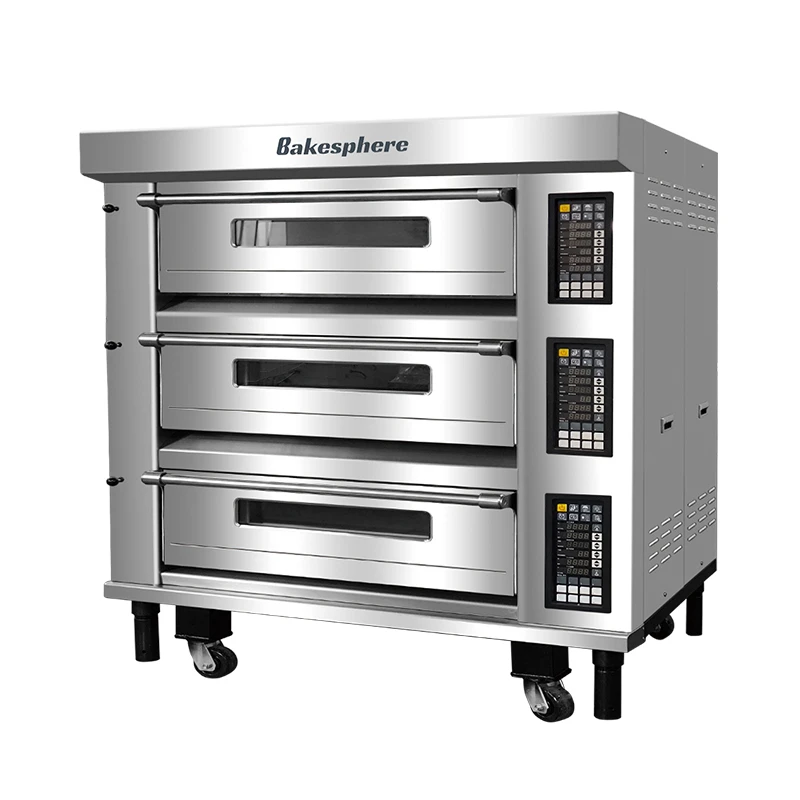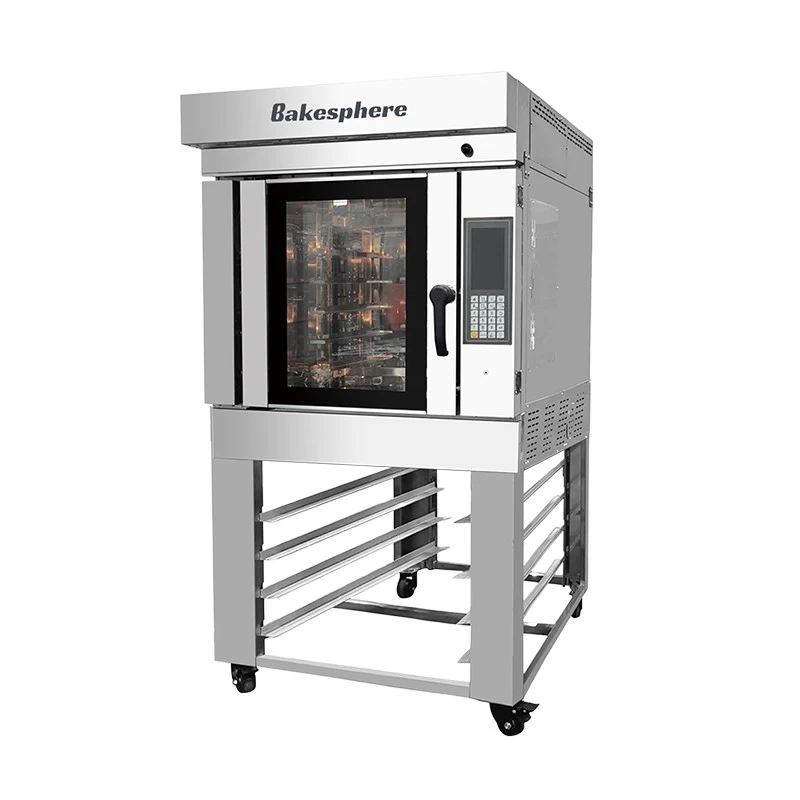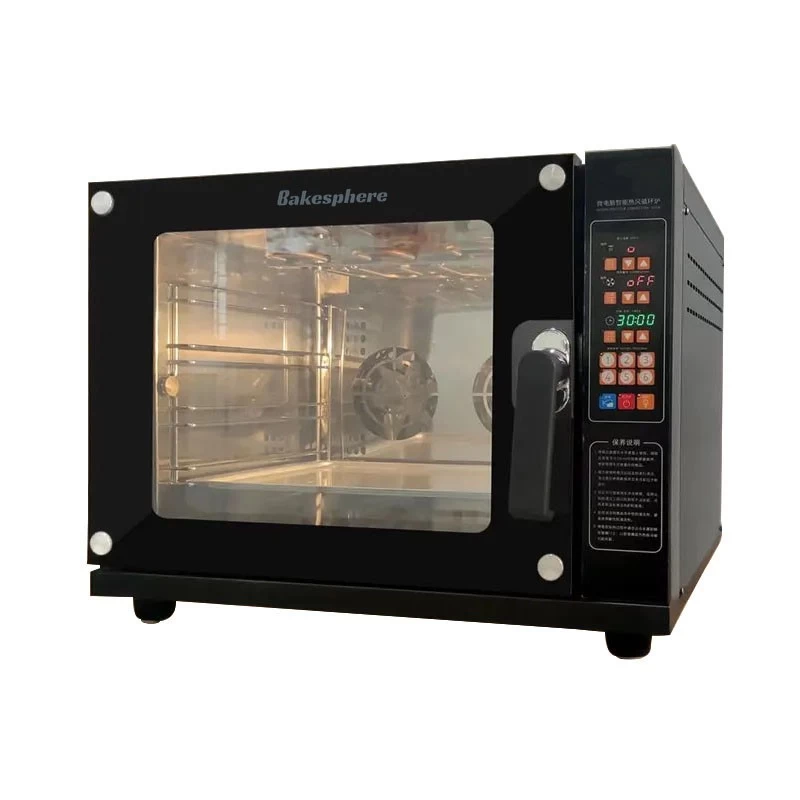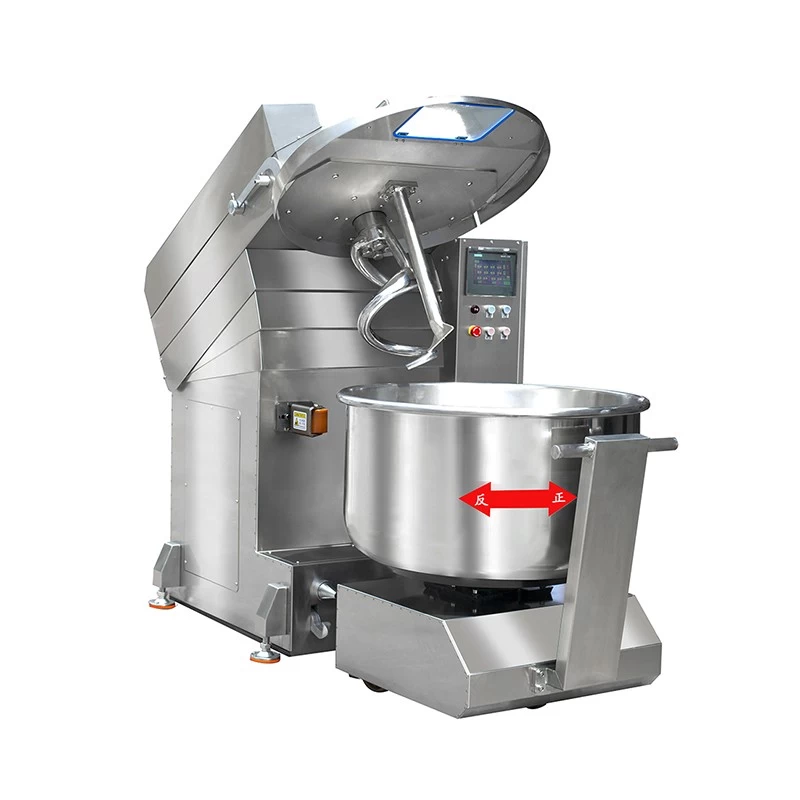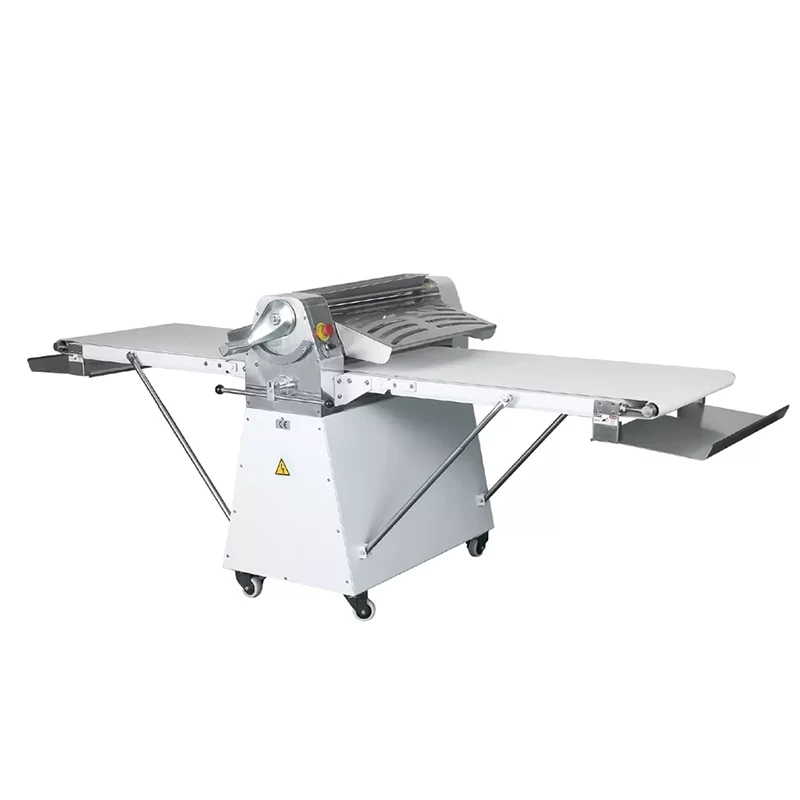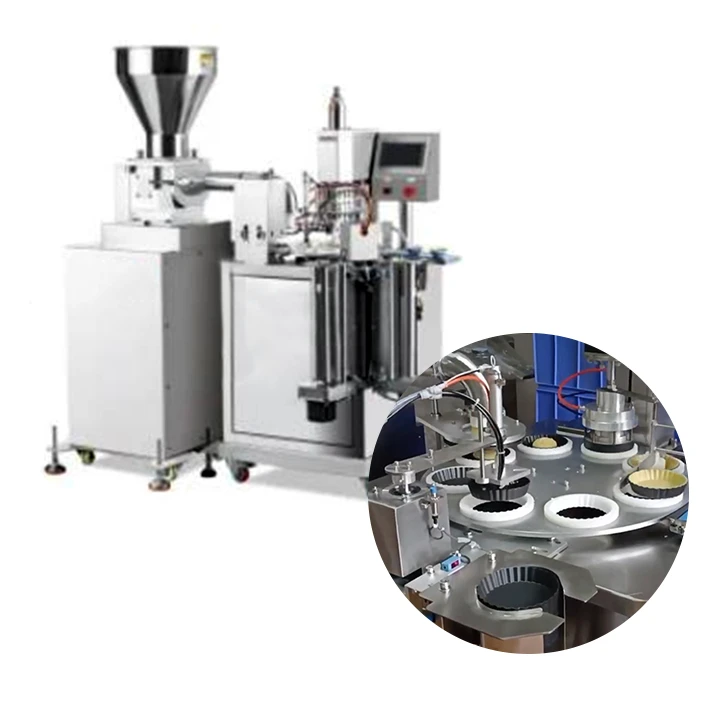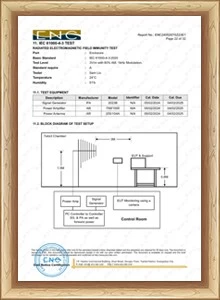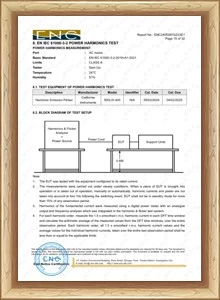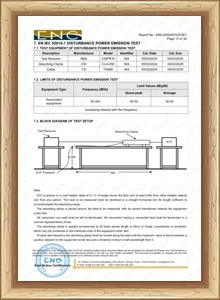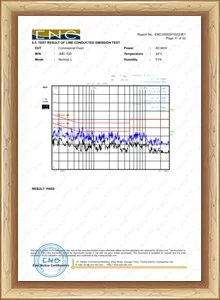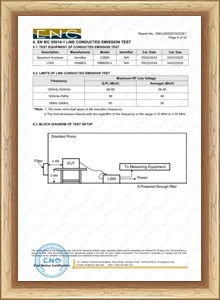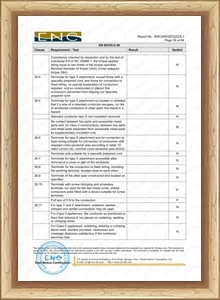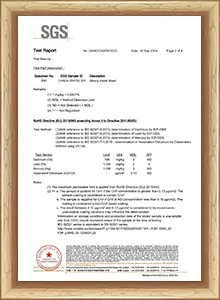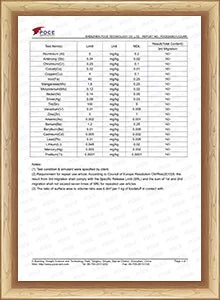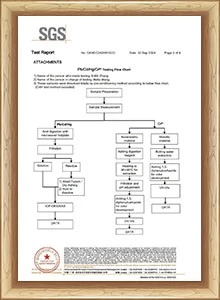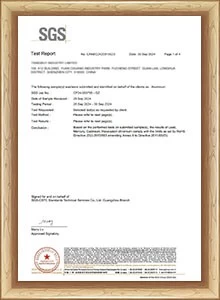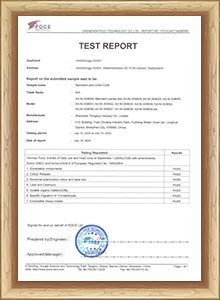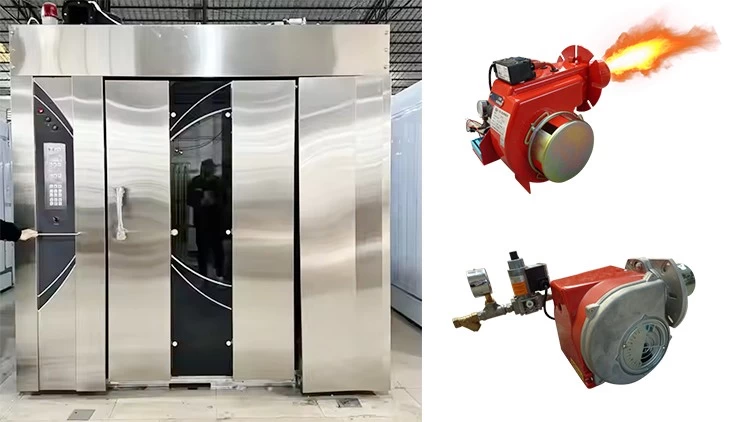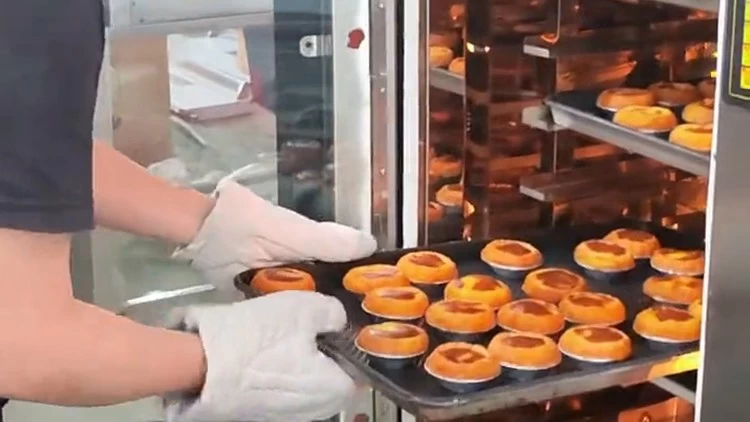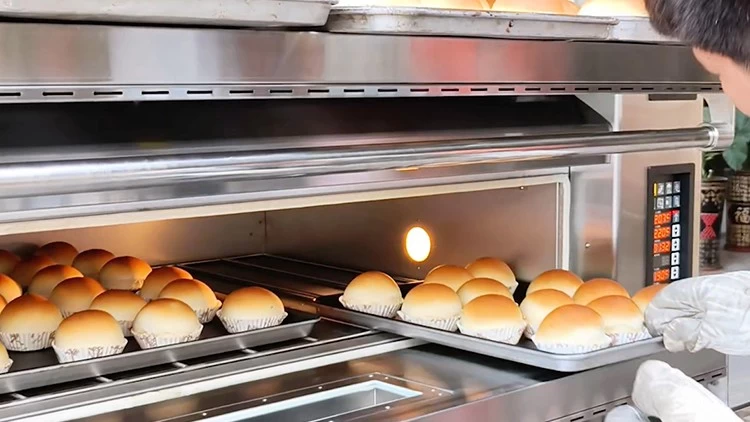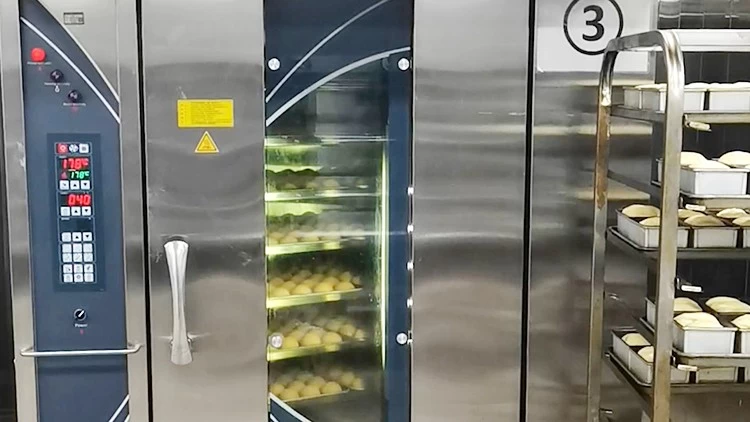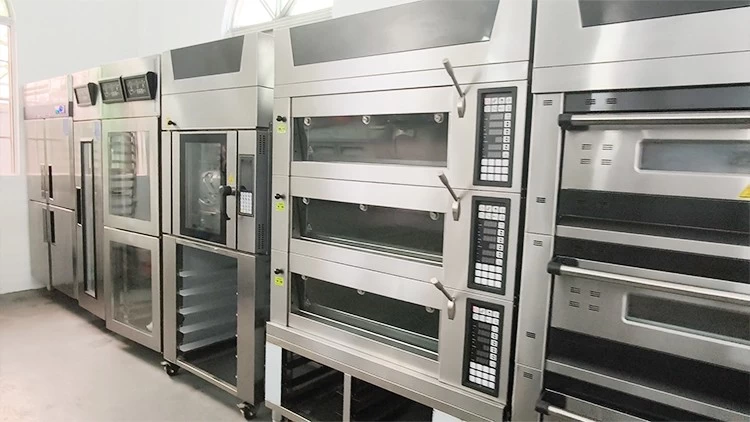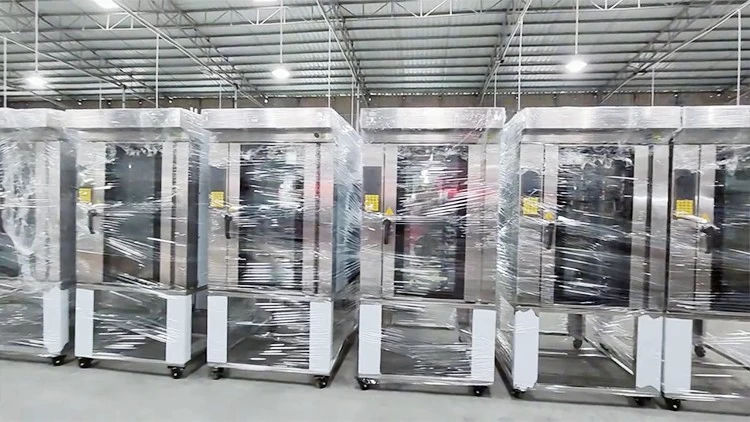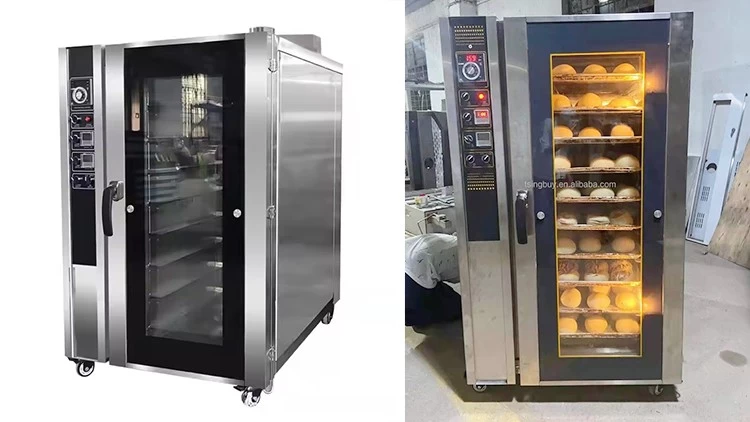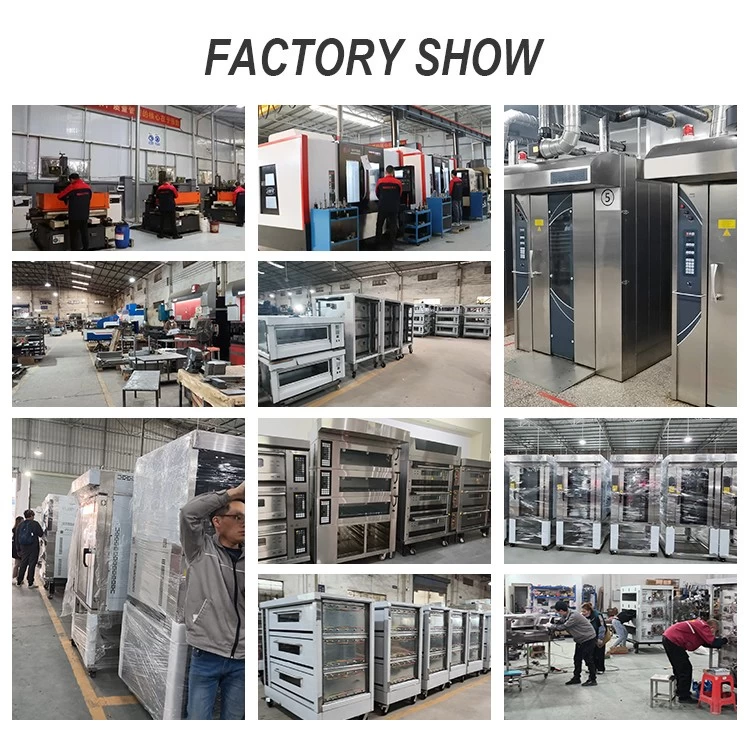Gas vs. Electric Ovens: Which is More Efficient for Commercial Baking?
Contents
- 1. Energy Efficiency Comparison
- 2. Heat-up Time and Temperature Recovery
- 3. Long-Term Operational Costs
- 4. Suitability by Bakery Type and Production Scale
- 5. Environmental Impact
- 6. Bakesphere Oven Solutions
- 7. Conclusion
- 8. FAQ
In commercial baking, the choice of oven is a critical decision that directly impacts product quality, production efficiency, and long-term operating costs. Whether you're running an artisan bakery, a large-scale food factory, or a growing pastry business, selecting the right type of oven can make a significant difference in both performance and profitability.
One of the most common questions faced by bakery operators is: Should I choose a gas or electric oven? Each has its own advantages and considerations in terms of energy efficiency, heat control, installation requirements, and operational expenses. Understanding these differences is essential for making an informed investment that aligns with your production needs.
At Bakesphere bakery oven factory in China, we manufacture a full range of commercial gas and electric ovens, including rotary ovens, convection ovens, deck ovens, and more. Designed for high-output, professional use, our ovens offer precision, durability, and customization options to suit different bakery scales and baking styles. In this article, we’ll help you compare gas and electric ovens from a commercial perspective and explore which option might be the most efficient for your baking operation.
1. Energy Efficiency Comparison
Energy efficiency is a top priority for commercial bakeries, as ovens are often the largest consumers of energy in daily operations. When comparing gas and electric ovens, it's essential to consider not only the cost of the energy source itself but also how efficiently that energy is converted into usable heat for baking.
● Fuel vs. Electricity Consumption
Gas ovens typically have lower energy costs in regions where natural gas is abundant and affordable. They can heat large baking chambers quickly and are often favored for high-volume, continuous baking processes. However, some heat is lost through open flames and ventilation, which can reduce overall efficiency.
Electric ovens, on the other hand, convert nearly all the electrical energy into heat, offering higher thermal efficiency. They often provide more accurate temperature control and better insulation, which reduces heat loss and keeps the oven chamber stable—particularly beneficial for delicate or precision-based baking.
● Regional Utility Cost Variations
The decision between gas and electric can also depend on your geographic location. In areas with low gas prices, gas ovens may offer lower operating costs. However, in regions where electricity is generated sustainably or subsidized, electric ovens can be the more cost-effective and eco-conscious choice in the long run.
● Heat Retention & Insulation
Well-insulated ovens minimize energy waste by retaining heat between baking cycles. Electric ovens generally have superior insulation, leading to more consistent baking temperatures and reduced preheating requirements. Gas ovens, while powerful, may experience more heat loss due to venting requirements and combustion exhaust.
● Bakesphere Examples
At Bakesphere bread oven manufacturer in China,we engineer our ovens with energy efficiency in mind, regardless of the power source. For example:
Our 10-Tray Electric Convection Oven is equipped with high-efficiency heating elements and precision insulation that reduces heat leakage and ensures stable chamber temperatures—ideal for bakeries that need consistent bakes with minimal energy waste.
The 32-Tray Gas Rotary Oven features a turbo-flow heat circulation system and optimized combustion control, which maximizes fuel-to-heat conversion and reduces overall gas consumption, even during long baking sessions.
Both models are designed to meet the demands of modern commercial bakeries while helping reduce operational energy costs.
2. Heat-Up Time and Temperature Recovery
In a commercial baking environment where production timelines are tight and batch turnover is constant, the speed and stability of your oven’s heat performance are crucial. Two key factors to evaluate when choosing between gas and electric ovens are initial heat-up time and temperature recovery after door openings or batch changes.
● Warm-Up Speed: Gas Leads in Power
Gas ovens typically heat up faster than electric ovens, especially in larger-capacity models. This is due to the direct combustion process, which quickly raises the chamber temperature to the desired level. For high-output bakeries operating in multiple shifts or under tight production windows, the shorter preheating time of gas ovens can contribute to better overall efficiency.
● Temperature Recovery & Heat Stability: Electric Wins in Precision
While gas ovens heat quickly, electric ovens excel at maintaining a stable internal temperature. Electric heating elements can respond more precisely to temperature fluctuations and are often supported by advanced control systems that adjust heat output in real time. As a result, electric ovens typically recover heat faster after the oven door is opened or a cold batch is inserted—important for consistent baking quality, especially with delicate items like pastries or cakes.
● Impact on Workflow
In continuous baking operations, rapid recovery times and stable chamber temperatures reduce baking inconsistencies, product waste, and downtime. For bakeries that require frequent loading and unloading—such as those on automatic production lines—this consistency ensures a more predictable workflow and better product quality across all batches.
● Bakesphere Examples
At Bakesphere, our ovens are engineered to balance speed and stability:
The Gas Deck Oven is built with multi-layer turbo-fired heating chambers, which provide fast heat-up and strong thermal inertia—ideal for bread and pizza production where high-heat baking is needed without long waits between cycles.
Our Electric Convection Oven uses fast-response heating elements and PID temperature control systems to recover chamber heat within seconds of door openings, delivering a highly consistent bake and reducing the risk of underbaked centers or overcompensated finishes.
These design choices help our customers maintain a smooth, uninterrupted baking process—whether working with sensitive pastry dough or high-volume bread trays.
3. Long-Term Operational Costs
When investing in commercial baking equipment, it’s important to look beyond the initial purchase price and consider the total cost of ownership over the lifespan of the oven. This includes not only utility expenses but also ongoing maintenance needs, repair frequency, and the oven’s overall durability—all of which play a major role in your bakery’s profitability.
● Initial Investment vs. Ongoing Utility Costs
Generally, electric ovens tend to have a lower upfront cost and simpler installation requirements, especially in kitchens without a built-in gas line or complex ventilation system. However, in regions where electricity is more expensive, the ongoing energy cost can accumulate significantly over time.
Conversely, gas ovens may have a higher initial price tag due to their complex combustion systems and required safety features. But if your bakery is located in an area with low gas rates, the lower cost of fuel can lead to meaningful savings in the long run, especially for operations running multiple shifts daily.
● Maintenance Requirements and Service Life
Gas ovens typically require more frequent maintenance, such as burner cleaning, gas valve checks, and vent inspections. Improper maintenance can lead to uneven heating or inefficient combustion. On the other hand, electric ovens have fewer moving parts and no open flame, resulting in lower maintenance needs and less downtime.
That said, service life can be excellent for both types if properly maintained. Well-built gas and electric ovens from trusted manufacturers like Bakesphere are designed for intensive daily use and offer long-term reliability in high-demand environments.
● Potential ROI
The best return on investment depends on your bakery’s production model and energy pricing.
For high-volume baking operations with access to low-cost gas, a gas oven may deliver better ROI through faster throughput and lower fuel costs.
For precision bakeries producing delicate goods or operating in areas with stable electricity rates, an electric oven may offer better ROI due to energy precision, lower maintenance, and reduced labor interruptions.
In both cases, choosing a well-engineered commercial oven that matches your production scale is key to maximizing long-term value.
4. Suitability by Bakery Type and Production Scale
Not all bakeries have the same production demands, and choosing between a gas or electric oven should be guided by the type of products you bake, your daily volume, and your facility’s infrastructure. Each oven type aligns with specific operational needs, and making the right match can significantly improve both efficiency and product quality.
● High-Output Bakeries: Gas is Built for Volume
Gas ovens are ideal for bakeries that produce large volumes of bread, rolls, or pizza on a continuous basis. These ovens offer faster heat-up times and stronger thermal power, making them well-suited for intensive baking cycles and industrial-scale production lines.
Gas models also tend to perform better in large chamber formats, such as rotary or multi-deck ovens, where consistent high temperatures are needed throughout the day.
Best for:
- Industrial bakeries and food factories
- Wholesale bread production
- High-volume pizzerias
- Multi-shift baking operations
● Precision Baking: Electric Offers Control
For bakeries that focus on cakes, pastries, tarts, or specialty desserts, electric ovens offer superior precision and stability. Their consistent heat distribution and programmable control systems make them ideal for products that require exact temperature accuracy and gentle, even baking.
Electric ovens are especially popular in artisan pastry shops, cafés, and hotel bakeries, where visual appearance, texture, and uniformity are key.
Best for:
- Pastry and dessert production
- Cake shops and patisseries
- Hotel and boutique bakeries
- Bakeries working with delicate or small-batch items
● Considerations: Automation, Space, and Ventilation
Beyond product type and volume, it’s also important to consider the physical setup and operational logistics of your bakery:
Automation compatibility: Both gas and electric ovens from Bakesphere can be customized to integrate with automatic production lines, conveyor systems, and programmable baking cycles.
Space limitations: Electric ovens are often more compact and easier to install in tight or temporary kitchen spaces, as they don’t require gas piping or exhaust ventilation.
Ventilation requirements: Gas ovens must comply with local gas safety and exhaust regulations, which may increase installation complexity. Electric ovens, with minimal emissions, are more adaptable in buildings with limited venting capacity.
By aligning your oven type with your bakery’s product focus, scale, and infrastructure, you ensure optimal performance, safety, and return on investment.
5. Environmental Impact
As sustainability becomes a greater priority in the food industry, bakeries are increasingly evaluating how their equipment choices affect their carbon footprint and alignment with green business goals. The type of oven used—gas or electric—can significantly influence your bakery's environmental impact.
● Emissions from Gas Ovens
Gas ovens rely on the combustion of natural gas or LPG, which produces carbon dioxide (CO₂), nitrogen oxides (NOx), and other emissions during operation. While modern gas ovens—such as Bakesphere’s high-efficiency rotary and deck ovens—are engineered for cleaner combustion, they still contribute to greenhouse gas output. In jurisdictions with strict emissions regulations, additional ventilation and exhaust treatment systems may be required, increasing the environmental and operational burden.
● Clean Energy Compatibility of Electric Ovens
Electric ovens, by contrast, produce zero on-site emissions, making them inherently cleaner in terms of daily operation. Their environmental advantage is even more pronounced when powered by renewable energy sources such as solar, wind, or hydroelectricity. As more commercial kitchens shift to renewable power contracts or install solar panels, electric ovens become a logical step toward reducing the bakery’s overall carbon footprint.
Additionally, electric ovens often support smart energy management systems, which can optimize energy consumption and align with off-peak usage to reduce environmental load and utility costs.
● Supporting Sustainability Goals
Modern bakeries—especially those serving environmentally conscious markets—are increasingly incorporating sustainability into their brand identity. Choosing equipment that aligns with eco-friendly practices not only helps meet internal goals but can also be a strong marketing advantage.
At Bakesphere, our electric oven line is designed with energy optimization and future-ready compatibility in mind, giving bakeries a flexible foundation for sustainable growth. Whether your priority is reducing emissions, improving energy efficiency, or qualifying for green certifications, selecting the right oven plays a key role in achieving those outcomes.
6. Bakesphere Oven Solutions
At Bakesphere China industrial baking oven supplier, we specialize in manufacturing high-performance commercial ovens designed for bakeries of all sizes—from artisan pastry shops to industrial-scale food plants. Our product lineup includes a full range of gas and electric ovens, built for efficiency, durability, and precision to meet the evolving needs of the baking industry.
● Diverse Lineup for All Baking Demands
Our ovens are available in multiple formats, including:
- Rotary ovens for large-scale, uniform batch baking
- Deck ovens for artisanal bread and pizza production
- Convection ovens for cakes, pastries, and rapid baking cycles
- Pizza ovens for high-heat, crisp-finish requirements
Each model is available in both gas and electric versions, allowing bakeries to choose the energy source that best fits their cost structure, facility infrastructure, and sustainability goals.
● Featured Models
Gas Rotary Oven (32-tray model) – A best-seller for industrial bakeries, featuring a high-efficiency burner system, turbine hot-air circulation, and robust build for continuous batch baking.
Electric Convection Oven (10-tray model) – Designed for precision baking with fast-response heating elements, PID temperature control, and superior chamber insulation for minimal heat loss.
● Smart Features and Customization
At Bakesphere, we offer light customization, full ODM & OEM support, and integration solutions for automated production lines, making our ovens ideal for both standalone bakeries and complex industrial setups. Whether you're launching a boutique bakery or expanding a large-scale operation, Bakesphere provides reliable, energy-efficient oven solutions tailored to your specific production needs.
7. Conclusion
Choosing between a gas or electric oven for commercial baking comes down to understanding the unique strengths of each option. Gas ovens offer rapid heat-up times and cost advantages in high-output environments, making them ideal for large-scale bread or pizza production. Electric ovens, on the other hand, provide superior temperature precision, energy efficiency, and easier maintenance—particularly well-suited for pastry, cake, and specialty baking.
When making your decision, consider factors like production volume, energy costs in your region, space and ventilation availability, and the types of products you bake most frequently. Matching your oven type to your actual operational needs will help maximize efficiency and long-term value.
At Bakesphere, we’re committed to helping bakeries of all sizes find the right solution. Whether you need the power of a gas rotary oven or the precision of an electric convection model, our team offers expert guidance, customizable options, and equipment built for performance and durability. Let us help you equip your bakery for success—efficiently and sustainably.
8. FAQ
1. Can I switch from a gas oven to an electric oven in my existing bakery?
Yes, it is possible to switch, but it depends on your kitchen’s infrastructure. Electric ovens require sufficient electrical capacity and may need less ventilation than gas ovens. Consulting with a professional or contact us to help determine if your facility supports the change.
2. Which oven type is more cost-effective for small bakeries?
For small bakeries with lower daily volume and limited space, electric ovens are often more cost-effective due to easier installation, precise temperature control, and lower maintenance requirements. However, local energy prices should also be considered.
3. How do gas and electric ovens differ in baking quality?
Gas ovens provide strong, radiant heat ideal for bread and pizza, creating a crisp crust quickly. Electric ovens deliver more even and consistent heat distribution, which is advantageous for delicate pastries and cakes requiring precise temperature control.

